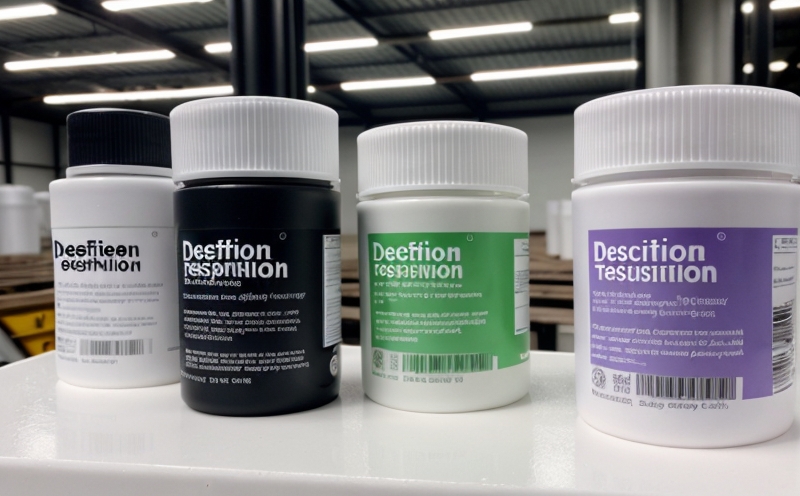ASTM D6239 THMs in Water by GC MS Test
The THMs analysis by Gas Chromatography-Mass Spectrometry (GC-MS) as per ASTM D6239 is a critical method for ensuring water safety and compliance with regulatory standards. This test measures the presence of THMs in water, which are formed during chlorination processes used to disinfect drinking water. The goal is to prevent harmful byproducts that can pose risks to public health.
The THMs group includes compounds such as chloroform, bromochloroform, dibromochloromethane, and bromodichloromethane. These are formed when chlorine reacts with organic matter in water. The formation of these byproducts is a natural consequence of the treatment process to kill pathogens, but they can also be toxic if present at high concentrations.
The ASTM D6239 procedure specifies the use of GC-MS for the quantitative and qualitative determination of THMs. This method involves several steps, including water sample collection, filtration, derivatization if necessary, and injection into a gas chromatograph. The compounds are separated based on their boiling points, and then they pass through the mass spectrometer for identification and quantification.
The THMs limits set by regulatory bodies such as the United States Environmental Protection Agency (EPA) are crucial. For instance, the EPA's Maximum Contaminant Level Goal for THMs is 80 parts per billion (ppb). Compliance with these standards ensures that water supplies remain safe and healthy.
The testing process requires strict adherence to ASTM D6239, which specifies detailed procedures. This includes the use of specific reagents, calibration solutions, and chromatographic columns. The method also emphasizes the importance of proper sample preparation and handling to avoid contamination or degradation of the analytes.
Our laboratory employs state-of-the-art GC-MS equipment capable of detecting trace amounts of THMs. This ensures accurate and reliable results, which are essential for compliance with regulatory standards. The testing process is time-consuming but necessary to ensure that water supplies meet safety requirements.
The significance of this test extends beyond mere compliance; it also helps in understanding the effectiveness of water treatment processes. By regularly monitoring THMs levels, municipalities and industries can make informed decisions about improving their treatment methods to reduce byproduct formation while maintaining effective disinfection.
In summary, the ASTM D6239 test for THMs in water is a vital tool for ensuring public health and environmental safety. Our laboratory offers this service with precision and reliability, adhering strictly to industry standards to provide accurate results.
Benefits
The ASTM D6239 test for THMs in water offers several benefits that are crucial for maintaining the safety and quality of drinking water. Firstly, it ensures compliance with international standards such as the EPA's Maximum Contaminant Level Goal (MCLG) of 80 ppb for THMs. This is essential to prevent potential health risks associated with high concentrations of these compounds.
Secondly, the test provides a means to monitor and improve water treatment processes. By regularly analyzing water samples for THMs, municipalities can identify areas where their disinfection methods may need adjustment. This proactive approach helps in minimizing byproduct formation while maintaining effective pathogen control.
Thirdly, the test offers peace of mind to consumers and stakeholders. Knowing that water supplies meet stringent safety standards can enhance public confidence in local infrastructure and water management practices.
Finally, compliance with regulatory requirements is not just about avoiding penalties; it also reflects a commitment to environmental stewardship. By adhering to international standards like ASTM D6239, laboratories play a crucial role in safeguarding public health and the environment.
Industry Applications
| Industry Sector | Specific Application | Description |
|---|---|---|
| Municipal Water Supply | Monitoring and Compliance | Ensure compliance with EPA's MCLG for THMs. |
| Industrial Water Treatment | Process Optimization | Identify areas where disinfection methods can be improved to reduce byproduct formation. |
| Agricultural Irrigation | Water Quality Assurance | Assure that irrigation water is safe for use without causing contamination downstream. |
| Retail and Commercial Facilities | Supply Chain Compliance | Ensure that the water used in facilities meets safety standards, thereby complying with supply chain requirements. |
| Application | Description | Relevance |
|---|---|---|
| Municipal Water Supply | Ensure compliance with EPA's MCLG for THMs. | Potential health risks. |
| Industrial Water Treatment | Identify areas where disinfection methods can be improved to reduce byproduct formation. | Environmental impact and operational efficiency. |
| Agricultural Irrigation | Assure that irrigation water is safe for use without causing contamination downstream. | Potential environmental damage. |
| Retail and Commercial Facilities | Ensure that the water used in facilities meets safety standards, thereby complying with supply chain requirements. | Consumer trust and operational costs. |
Quality and Reliability Assurance
The reliability of our ASTM D6239 THMs testing is ensured through strict adherence to international standards and the use of advanced instrumentation. Our laboratory employs certified analysts who are trained in the latest techniques for sample preparation, chromatography, and mass spectrometry.
The equipment used includes high-performance gas chromatographs with quadrupole mass spectrometers capable of detecting trace amounts of THMs. Calibration is performed using certified reference materials to ensure accurate results. The laboratory also maintains a quality management system that adheres to ISO/IEC 17025 accreditation standards.
We employ rigorous quality control measures, including internal audits and proficiency testing programs, to maintain the highest level of accuracy and reliability in our test results. This ensures that clients receive consistent and dependable data every time they rely on our services.
The use of advanced technology and skilled personnel guarantees that the ASTM D6239 THMs testing is not only precise but also repeatable, providing reliable data for decision-making. This commitment to quality and reliability underscores our dedication to supporting clients in their pursuit of safe and compliant water supplies.





